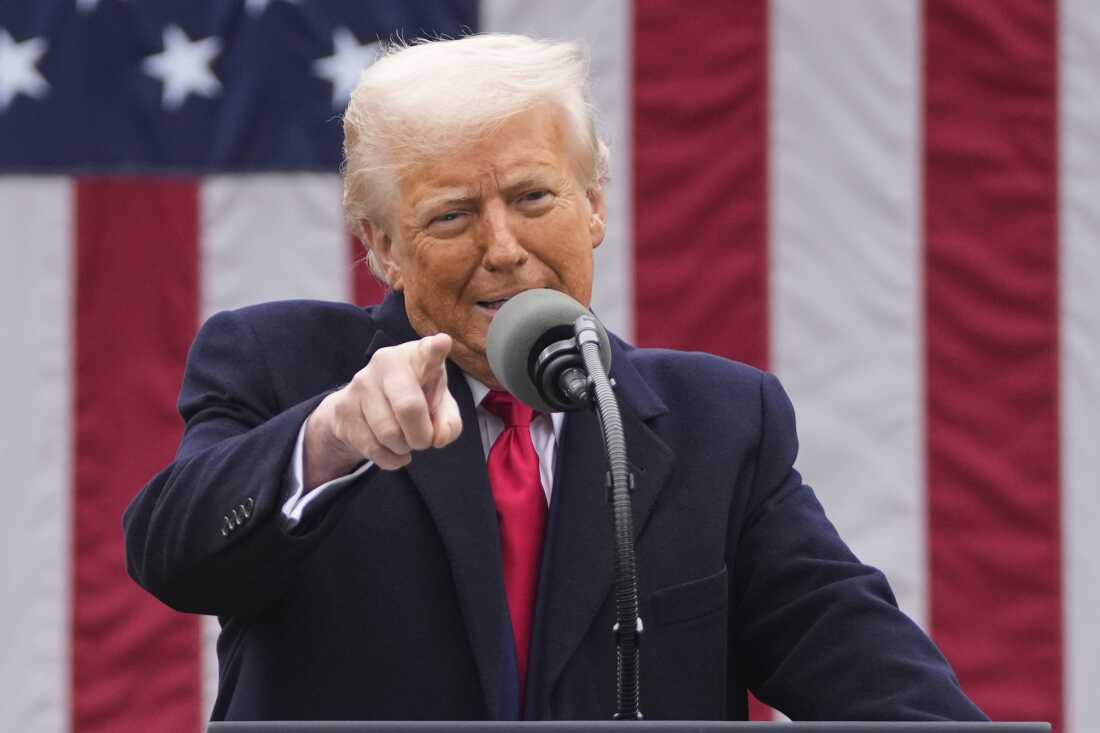Donald Trump confronts the intricate challenge of confronting Russian aggression while simultaneously protecting American consumers from escalating fuel prices.
With ongoing geopolitical tensions impacting energy markets, the former president has highlighted the necessity of a firm response to Vladimir Putin’s actions in Ukraine, while avoiding additional economic pressure domestically. The difficulty involves achieving equilibrium between exerting significant pressure on Moscow and preserving internal stability, especially considering the volatility of U.S. gasoline prices and the wider cost-of-living worries for countless Americans.
Traversing an intricate energy environment
Energy markets have become a central battleground in U.S.-Russia relations. Any measures aimed at curbing Russian oil revenues—such as sanctions or export restrictions—can have immediate ripple effects on global fuel prices. For American households, even small spikes at the pump translate into significant increases in monthly expenses. Trump’s strategy, therefore, must account for both international leverage and domestic economic realities.
Historically, Russian oil and gas exports have exerted influence on global markets, and sudden disruptions can send prices sharply higher. This dynamic places the U.S. in a position where actions meant to penalize Moscow risk unintended consequences for consumers. It also underscores the broader tension in foreign policy: the most effective strategies abroad may not always align with short-term domestic interests. Any approach that seeks to limit Russia’s access to energy revenue must consider alternatives to prevent widespread economic discomfort in the United States.
The political and economic balancing act
Trump’s stance underscores the convergence of international relations and internal governance. On one hand, there is significant public and governmental pressure to react decisively to Russian military aggression and uphold Ukraine’s independence. Conversely, American citizens are acutely aware of fuel expenses, and decision-makers recognize that shifts in inflation and gasoline prices can lead to immediate political consequences.
Balancing these pressures requires innovative approaches. For instance, targeted sanctions that focus on Russian state enterprises or specific financial channels may allow for punitive measures without disrupting global oil flows entirely. Additionally, strategic petroleum reserves and diplomatic coordination with allies can help cushion the domestic impact while maintaining a credible stance internationally.
The previous president’s focus on energy self-sufficiency is also relevant to this conversation. Increasing internal production, enhancing infrastructure, and broadening supply origins are strategies that can lessen America’s susceptibility to outside disruptions. By strengthening the nation’s energy robustness, the U.S. gains more influence over international entities and lessens the impact of geopolitical disputes on its populace.
Weighing global responsibility against local impact
Any attempt to economically debilitate Russia without worsening internal difficulties brings up larger inquiries regarding the compromises intrinsic to foreign policy. The conflict between ethical obligations—aiding Ukraine and deterring hostility—and financial repercussions—safeguarding American finances—highlights an ongoing dilemma for leaders managing global emergencies.
Trump’s approach signals recognition of this dual responsibility. By advocating for measures that limit Putin’s resources while simultaneously protecting domestic consumers, he highlights the need for nuanced strategies that account for both humanitarian and economic dimensions. This dual focus is critical, as overly aggressive sanctions could destabilize markets, while insufficient measures risk emboldening adversaries and undermining U.S. credibility.
The act of balancing also necessitates effective communication. It is crucial for the public to grasp the reasoning underpinning any policy to sustain endorsement. Transparent communication, detailing the necessity of specific measures and the government’s efforts to safeguard citizens from adverse impacts, aids in mitigating public apprehension and averting misunderstandings regarding objectives or motives.
Future strategic considerations
Looking forward, energy markets, international partnerships, and internal economic situations will collectively shape the impact of Trump’s suggested strategies. Strong collaboration with allies is essential to forge a unified stance that amplifies pressure on Russia and mitigates unforeseen repercussions for worldwide provision. Similarly, tracking price increases and consumer spending patterns will guide modifications designed to shield Americans from abrupt rises in expenses.
Investment in long-term energy solutions also shapes the equation. Expanding renewable energy, enhancing grid efficiency, and fostering alternative fuel technologies can reduce reliance on volatile foreign oil markets. While these measures do not provide immediate relief, they establish a foundation for sustained energy security and policy flexibility.
Ultimately, Trump’s challenge encapsulates the broader dilemma faced by policymakers: pursuing assertive foreign policy objectives without destabilizing domestic life. The tension between global responsibility and local impact remains at the core of strategic decision-making, demanding careful analysis, forward-looking planning, and a deep understanding of both international and domestic forces.
The interplay between {{policy}} and political considerations
Managing the intersection of geopolitics and domestic economics is not solely a technical task; it also carries significant political weight. Public perception of energy policy can influence broader approval ratings and electoral outcomes, making the stakes higher for any action related to Russia and fuel costs. Trump’s proposals therefore must navigate both tangible economic considerations and the intangible realm of public sentiment.
By seeking solutions that address the threat posed by Putin while shielding Americans from immediate financial stress, the approach attempts to reconcile two often conflicting priorities. Success hinges on the ability to implement targeted, strategic measures that exert meaningful pressure abroad while maintaining stability and confidence at home.
The difficulties encountered by Donald Trump highlight the intricate nature of modern policy formulation. Confronting global aggression demands resolute, tactical measures, yet such choices must not be made independently of internal circumstances. Striking a harmony between penalizing Russian endeavors and safeguarding American consumers presents a nuanced undertaking—a task that emphasizes the complex relationship among foreign policy, economic steadiness, and societal anticipation in our current globalized environment.





